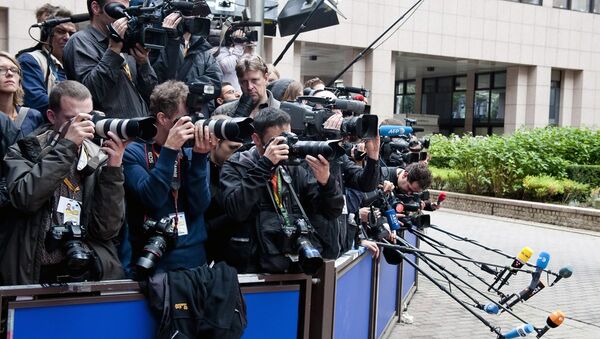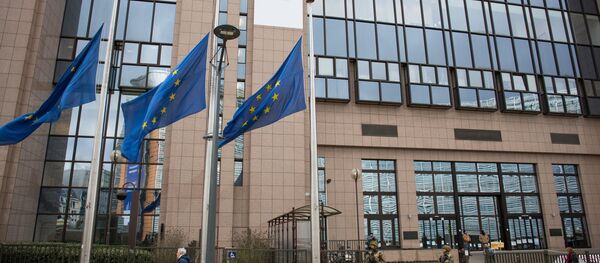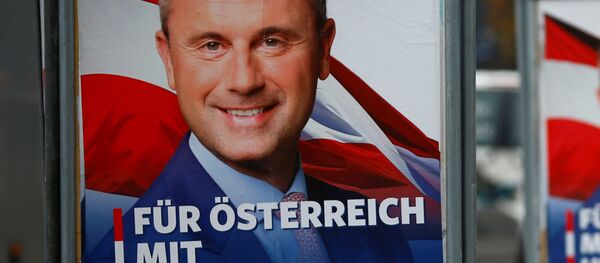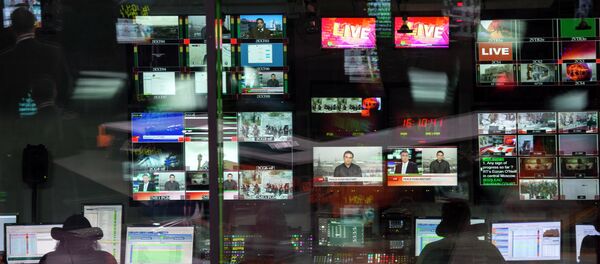Lazanski, a commentator for Serbia's Politika newspaper who specializes in political and military affairs, told Sputnik that historical revisionism has contributed to the EU's misguided policy towards Russia, which could have dangerous consequences.
"This kind of resolution in the 21st century reminds me of Kristallnacht. This isn't the first time the EU has taken a, let's say, strange decision. Remember the resolution which equated Nazism with Communism," Lazanski said.
"We are witnessing revisionist politics in some European countries which lost the Second World War. It's interesting that when the Baltic countries hold Nazi or fascist marches, when they honor the memory of the SS, Europe doesn't pay any attention. All this raises serious concern, and the question – where is Europe heading?"
The journalist said that the resolution is an affront to the liberal European values which the EU professes to be founded upon. However, the EU's attempt to suppress Russian media reflects the fact that journalism in Europe and the US has long ceased to represent freedom of expression.
"For years we have lived with the illusion that Western journalism itself means freedom of the press. When people mention the New York Times or Washington Post, some of our journalists still almost fall on their knees. However, Western journalism hasn't been free for a long time, which was demonstrated, for example, by the recent elections in the US," Lazanski said.
The resolution regarding alleged "anti-EU propaganda" was passed by the European parliament on Wednesday by 304 votes to 179, with 208 abstentions.
Proposed by Polish lawmaker Anna Fotyga, the resolution equates news from Russian outlets such as Sputnik and RT, with propaganda from Daesh, Al-Qaeda and other violent jihadi terrorist groups.
In order to counter this so-called "propaganda pressure," the resolution proposes to reinforce the EU's "tiny 'strategic communication' task force" with up to one million euros ($1.06 million) to carry out media campaigns.
Lazinski said that the EU decided to pass the resolution because of the success of Sputnik and RT in reporting stories which go untold by the mainstream media.
"As for the comparison of RT and Sputnik with Daesh, that is some nerve. Why hasn't the EU ever thought about where these terrorists came from? Why doesn't the EU talk about how France and Great Britain used the (UN Security Council) resolution about a no-fly zone above Libya to their own interests, and destroyed that country?"
"Why don't they talk about why crowds of refugees have surged from the Middle East, and who are now staying in our country because those same Great Britain and France aren't in a hurry to take them? It's clear why the EU is silent, because they are members of the EU, although you could say one of them is a former member. Comparing Sputnik and RT with Daesh is audacious hypocrisy," Lazinski said.






